Study to explore if fungi can become new sustainable building material with computational capabilities

A new international research project will examine how living fungi, in collaboration with bacteria, can produce sustainable materials with computational capabilities in the future.
UWE Bristol’s Professor Andrew Adamatzky is the principal investigator on the €4 million (£3.49m) study, which has been funded by the EU Commission.
The project will investigate engineered living materials (ELMs) - materials composed of living cells that maintain biological activity within use-case scenarios. The project will investigate how ELMs could become sustainable building materials. The project will also investigate the novel functionalities of these materials such as their inherent intelligent, adaptive and self-healing properties.
The research project is being led by Phil Ayres, Professor of Biohybrid Architecture at the Royal Danish Academy – Architecture, Design and Conservation.
Professor Ayres said: “In the coming decades, it is projected that we will have a global shortage of key resources and materials, despite forecasts of a near doubling of material demand up to 2060. This will not only affect the expanding construction sector, but all sectors immensely. Our aim is that the results of the research can be of decisive importance in relation to creating new material streams and production methods with biological, intelligent materials for the construction industry and beyond, which can make material production more resource-saving and environmentally friendly.”
The field of ELMs is still in its infancy but it promises radical and disruptive alternatives to current methods of material production, fitting within a broader shift towards biofabrication. The project will address an existing development gap in the field by developing a portfolio of mycelium-based ELMs composed from a co-cultivation process using fungi and a strain of bacteria.
Other universities participating in the four year study are Vrije Universiteit Amsterdam, Ghent University, Universiteit Utrecht and the University of Oslo.
The EU Commission selected 39 new projects for funding under its 2021 EIC Pathfinder call for cutting edge research projects to achieve breakthroughs in five strategic areas.
Related news

15 December 2025
UWE Bristol rises eleven places in People & Planet University League
UWE Bristol has risen to 14th in the People & Planet University League (UK), a jump of eleven places.

12 December 2025
UWE Bristol’s environmentally conscious and student-focused accommodation wins three awards
Purdown View, the world's largest certified Passivhaus student accommodation development, has been recognised at Property Week Student Accommodation Awards.

20 November 2025
UWE Bristol ranked among top 12 per cent of universities globally for sustainability
UWE Bristol has climbed over 400 places in the QS World University Sustainability Rankings 2026, which evaluates universities on a range of environmental and social impacts.

06 November 2025
UWE Bristol welcomes West of England Mayor for annual Green Week
Helen Godwin, Mayor of the West of England, visited UWE Bristol during its annual Green Week to see the sustainability-driven research, innovation and skills initiatives that are helping to power the growth of the region’s green economy.
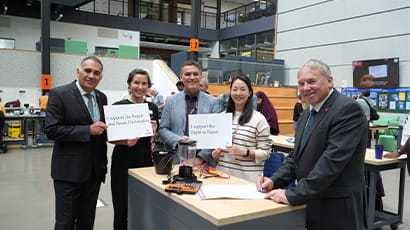
16 October 2025
UWE Bristol signs Repair and Reuse Declaration in commitment to sustainable initiatives
UWE Bristol is the first UK university to sign the Repair and Reuse Declaration as a whole institution, a call to legislators and decision makers to tackle climate change through greater repair and reuse support.

15 October 2025
UK food needs radical transformation on scale not seen since Second World War, new report finds
A new report from the Agri-Food for Net Zero Network+ finds urgent action on food is needed if the UK is to reboot its flagging economy, save the NHS billions, ensure national food security, and meet climate commitments.
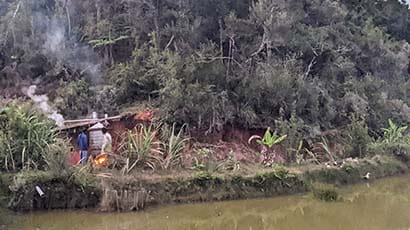
24 September 2025
UWE Bristol to help protect threatened forest in Madagascar in £800k project
UWE Bristol is a partner in a groundbreaking project awarded almost £800,000 in funding to protect one of Madagascar’s most precious and threatened forests.
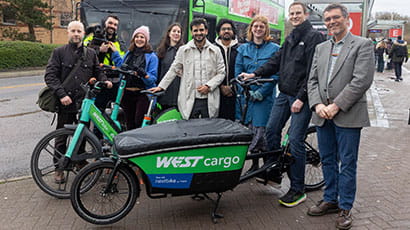
24 February 2025
WESTbusStop+ makes sustainable travel more convenient
A new WESTbusStop+ bringing together buses and other ways to travel has been officially opened at UWE Bristol’s Frenchay campus.
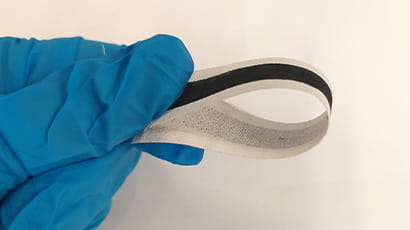
03 January 2025
Big leap forward for environmentally friendly ‘e-textiles’ technology
Research led by UWE Bristol and the University of Southampton has shown wearable electronic textiles (e-textiles) can be both sustainable and biodegradable.

28 November 2024
Work of UWE Bristol academics features in Government report on air quality measurement
Two UWE Bristol academics have made contributions to an influential Government report on the measurement of air pollution.
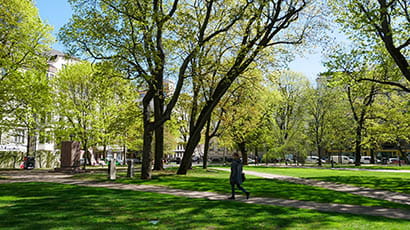
27 November 2024
Traffic noise reduces the stress-relieving benefits of listening to nature, study finds
Road traffic noise reduces the wellbeing benefits associated with spending time listening to nature, researchers have discovered.
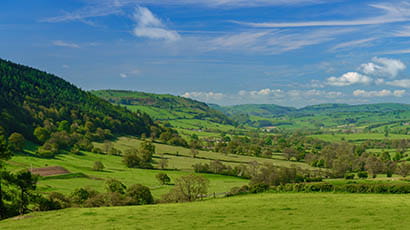
15 November 2024
Grasslands project led by UWE Bristol academic to support UK’s bid for net zero emissions
A UWE Bristol researcher will lead a £4.7 million project focused on the management of UK’s grasslands aimed at supporting efforts to achieve net zero emissions by 2050.






